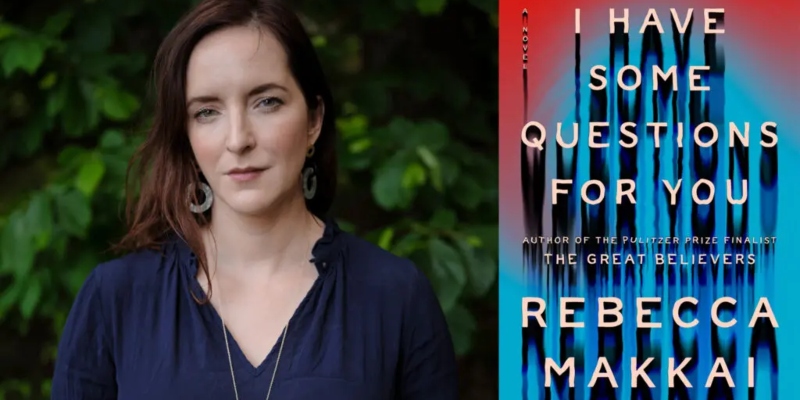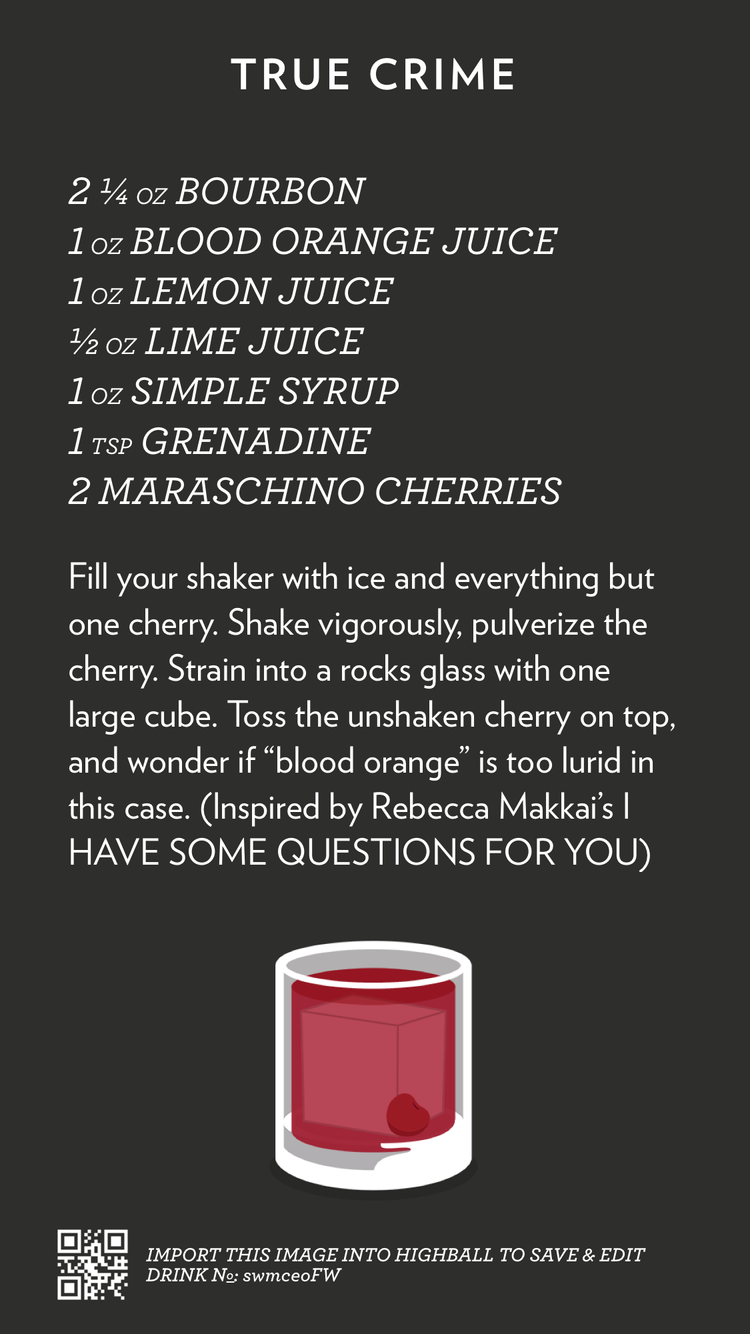
Rebecca Makkai Has Qualms with True Crime Media (and Makes That Critique in Her New Novel)
In Conversation with Christopher Hermelin on So Many Damn Books
Rebecca Makkai drops into the Damn Library a few months after her newest smash novel I Have Some Questions For You hit the shelves, chatting about critiquing and celebrating the podcast world, how podcasters are the new detectives, writing a campus novel when you live on campus, and so much more, including just how it feels to be where she’s at in her career at this point. Plus, we delve into her 84 Books Project and Madonna in a Fur Coat by Sabahattin Ali.
Subscribe and download the episode, wherever you get your podcasts!
From the episode:
Christopher: Now that you’ve had the novel out for a couple of months, have you had any surprising, or welcome, early reactions to the book?
Rebecca: Yeah, I mean—I’ve been really thrilled that it’s been taken seriously. I’ll say that I think I’m risking on two levels, because I’m writing adult literary fiction. The risk there is, number one, I am writing about someone looking back on adolescence, and people could—especially when you’re a woman—people are more likely to kind of pat you on the head.
So I’m writing about adolescence, and then I’m also writing what is definitely not a traditional murder mystery. But we do have a murder that, you know, might have been wrongly solved. And by the end of the book, we know who did it.
When people get a whiff of that genre (which this isn’t but, you know, it’s adjacent to that) they can be very condescending about that. And so I did worry going in like, okay, I’m writing about someone looking back on their teenage years and I’m writing what people might call a murder mystery. I don’t know if people are going to kind of dismiss this. So I’ve been thrilled that people have taken it seriously. I couldn’t wish for a better reaction or better support from bookstores. It’s been great.
I tried to write a book wherein if you do figure it out, if you do think you know who did this midway through, you won’t feel disappointed at the end, you’ll feel vindicated. Right? I’ve had maybe a couple of people say like, I thought that, but I didn’t know how, but I thought it was…
But most people come up and say, I really thought it was this other person. I really thought, you know, I fell for kind of a red herring and was very surprised by the outcome. That’s been gratifying because I kind of want to trick people a little bit.
Christopher: There are definitely some really fun red herrings throughout. And another thing that I think is working here is that you’re also critiquing the true crime podcast industry, as well as depicting the making of a very good one. Can you talk about having it both ways? I thought it was fantastic.
Rebecca: Well, I mean, I think true crime media goes both ways, right? I think there’s good and bad, sometimes side by side. And it’s good and bad for the consumer where like, this could really mess you up. But also for some people, it’s stress relief. Then you look at the actual cases being discussed. There are some gross lurid retellings of like, why do we need to hear about Jeffrey Dahmer again? We’re not learning anything here. And I don’t mean—I haven’t watched the new series. It might be wonderful. I just mean like, why are we doing that?
But at the same time, there are cases getting solved. There are cold cases getting reopened. There’s national attention on things, people are identifying Jane Doe’s online, or like the Murdoch thing in South Carolina. I don’t think we would have gotten justice there if that had stayed local. Right? That was podcasting and outside media before that was hitting home in South Carolina.
So it is a contradictory thing, and I’m putting all that in there. The book is not coming down on, this is all good or this is all bad. And, within the book, the student podcast makes things happen. We also have this really kind of icky guy with a YouTube channel who’s obsessed with the case.
Here’s the thing. I’m not writing true crime. I’m writing fictional crime, about true crime. So it’s having it both ways, in part because I don’t have this moral dilemma of, oh, but am I harming people by writing this? Am I revictimizing? Because these people only live in my head. If I were writing about a real case, I think I’d have a lot more ethical hoops to jump through, questions for myself. But I’m only hurting myself.
Christopher:This is capital “E” Entertainment at the end of the day. And it’s wonderful in that way.
*
What’d you buy?
Rebecca: Plug Outlet Extender
Christopher: Owlish by Dorothy Tse, What We Fed to the Manticore by Talia Lakshmi Kolluri, A Place in the World Called Paris, forward by Susan Sontag
*
Recommendations:
Rebecca: The Door by Magda Szabó, Beef (Netflix), naps
Christopher: Poisonwood Bible by Barbara Kingsolver, Wishing Game by Meg Shaffer
*

So Many Damn Books
A blessing, a curse, a podcast. est. 2014. Christopher (@cdhermelin) invites folks to the Damn Library to talk about reading, literature, publishing, and trying to make it through their never-dwindling stack of things to read. All with a themed drink in hand. Recorded at the Damn Library in Brooklyn, NY.



















